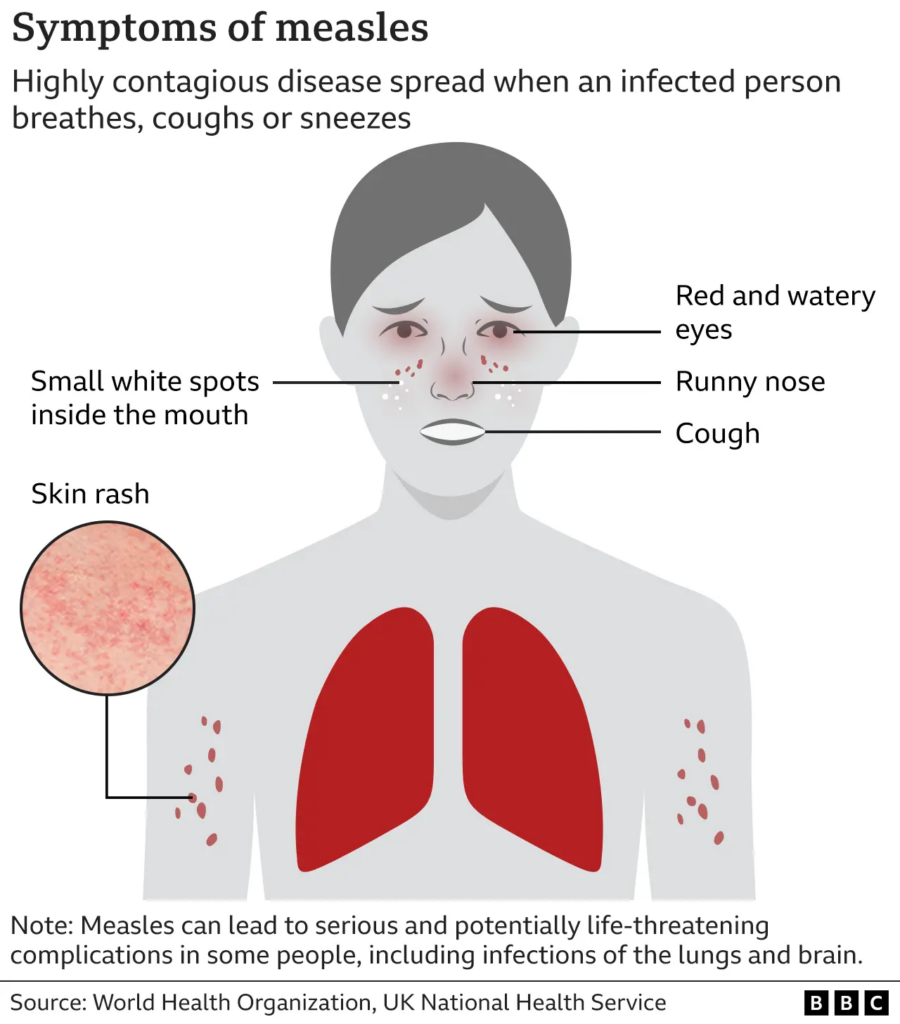EBS STAFF
Montana’s first measles case since 1990 was confirmed on April 17 in Gallatin County.
The Department of Public Health and Human Services is investigating five confirmed cases in children and adults who were exposed to the disease while traveling outside of the state. All five individuals were either unvaccinated, or have an unknown vaccine status.
“Measles is highly contagious and highly preventable with vaccination, and ensuring people are immunized remains our best defense. If people are unable to find their vaccine records, there are no contraindications to receiving an additional dose,” Dr. Peter Bulger, Gallatin City County Health Department medical director, stated in an April 17 DPHHS release.
The disease is highly infectious and typically starts with a fever, cough, runny nose, red eyes, white spots in the mouth and a red rash appearing 14 days after exposure, starting on the face. Measles is especially dangerous for infants for whom vaccination is generally not recommended until 12 months. The Center for Disease Control reported 712 confirmed cases of measles in the U.S. and two confirmed deaths as of April 10, though cases can be missed.

“Maintaining a high level of vaccination in the community helps protect infants who are too young to be vaccinated, as well as individuals who cannot be vaccinated for medical reasons,” the release stated.
The GCCHD identified two sites of exposure in the Gallatin Valley.
The local health department and DPHHS urged those with unknown vaccination records to learn more about their status by calling their old high school, university, doctor’s or pediatrician’s office, the health department of your hometown or home state immunization records.
“While it is unfortunate to have cases of measles after 35 years of disease inactivity in Montana, we have been working diligently with our local partners to prepare,” stated DPHHS Public Health Physician, Dr. Maggie Cook-Shimanek in the release.
“We are confident that our public health and clinical partners will work together and address this situation as quickly as possible. It is important for everyone to know their vaccination status and to visit with their health department or health care provider if they are unsure.”













